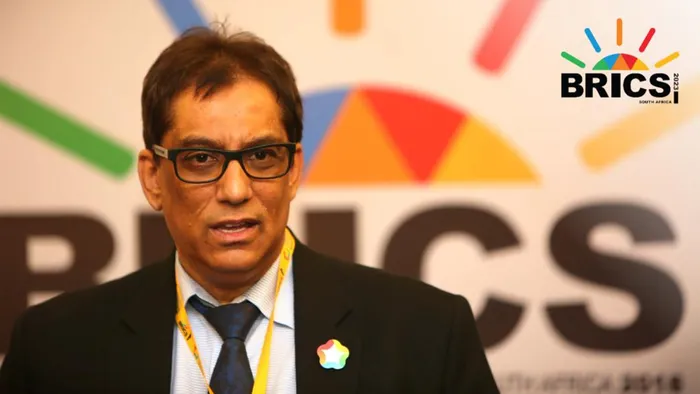Africa and BRICS – a partnership for tomorrow

Picture: Supplied - Dr Iqbal Survé.
Picture: www.storyblocks.com - Increased intra-African trade should lead to job creation, economic diversification, and reduced dependence on external markets, says Dr Survé
By Dr Iqbal Survé
In the global landscape, Africa has long been perceived as a continent with untapped potential, rife with abundant resources and opportunities. The emergence of BRICS (Brazil, Russia, India, China, and South Africa) as an influential economic bloc presents a unique opportunity for the entire African continent to seize its rightful place in the global narrative as a force to be reckoned with. The time has come for Africa to harness its vast potential, with Africans leading the way, in partnership with BRICS, to drive development, integration, and industrialization across the continent.
The prevailing narrative of Africa as a struggling continent in perpetual need of assistance from the so-called "developed" Western world is outdated and limiting.
Africa's growth rates have consistently outpaced many Western economies in recent years, and the continent is experiencing an economic renaissance. The BRICS nations recognize this, and their interest in collaborating with Africa is not about ownership, but rather fostering mutually beneficial partnerships that enable Africa to thrive - on its own terms.

One of the key aspects of the BRICS-Africa partnership is a shared commitment to development. This partnership aims to bolster infrastructure, education, healthcare, and technology across the continent, as well as a robust and independently minded media whose freedom of speech must be sacrosanct. Add to this, an objective but inclusive financial system that is driven by egalitarian principles, and Africa has a recipe for success.
As Africans will lead these initiatives, they can ensure that the projects align with the needs and aspirations of their respective nations. Such ownership is crucial to developing sustainable solutions that resonate with the diverse cultural, economic, and social landscapes of Africa, and sharing them.
Integration is another cornerstone of the BRICS-Africa alliance. By enhancing regional cooperation and breaking down trade barriers, the partnership can unleash the tremendous economic potential of a united African continent. Increased intra-African trade would lead to job creation, economic diversification, and reduced dependence on external markets. It would enable Africa to leverage its internal resources for the benefit of its people and contribute more effectively to the global economy.
Industrialisation is yet another area where BRICS and Africa can join forces. Industrial growth is vital for lifting millions out of poverty, creating a skilled workforce, and advancing technological innovation.
The BRICS nations have invaluable experience and expertise in industrial development that they can share with African countries to expedite their own industrial revolutions. This cooperation should, however, be one of partnership and not exploitation, ensuring that African nations maintain sovereignty over their economic policies.
The idea that Africa must choose between BRICS and the Western world is a false dichotomy. It is not about replacing one partnership with another, but about leveraging all available partnerships for Africa's advancement. As the Western world faces its own challenges and uncertainties, Africa's ascendancy presents an opportunity for diverse collaborations that can benefit all parties involved.
A cautionary tale - African leaders must be vigilant to safeguard their nations' interests while engaging in these partnerships. Transparent governance, strong institutions, and accountability are paramount to ensuring that Africa reaps the full benefits of this alliance without compromising its sovereignty or falling prey to neo-colonial practices.
Africa is more than just its vast resources; it is a continent teeming with talented, innovative, and resilient people. Africans have the vision and capacity to shape their own destinies. The BRICS-Africa partnership should serve as a catalyst, empowering African nations to drive their own progress and contribute positively to the global community.
In conclusion, the collaboration between BRICS and Africa is a significant step towards realizing Africa's full potential. This partnership must be built on shared values, mutual respect, and a deep understanding of Africa's unique circumstances. By embracing this opportunity and seizing control of their own narrative, Africans can truly take their rightful place as a formidable force on the world stage. As Africa rises, so can the rest of the world, in a global community strengthened by cooperation, integration, and inclusivity.
*Dr Iqbal Survé is the former chair of the BRICS Business Council (2018), and the current co-chair of the BRICS Media Forum. He is also a member of the advisory council of the Belt and Road initiative for Africa.
IOL